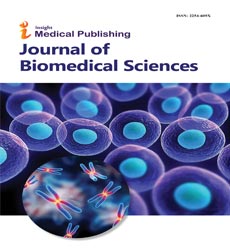Abstract
Biotechnology 2021: Characterisation of Porous Ti-20Zr Binary Alloys Produced by Powder Metallurgy as Implant- Eyyup Murat Karakurt- Brunel University London, UK
In present work, the effect of porosity level and sintering time on the microstructure and mechanical performance of a Ti-20Zr alloy (at %). It was produced following a standard powder metallurgy route and was sintered at 1200 C, under a pressure of 300 MPa, for different times (4, 6 and 8 h). Ammonium bicarbonate (NH4HCO3) was the space holder. Porous Ti-20Zr (at.%) alloys were prepared in two ranges of porosities. The metallographic examination of Ti-20Zr binary alloy was performed by optical microscopy (OM), scanning electron microscopy (SEM), and energy dispersive spectrometry (EDS) analysis. Uniaxial compression tests were carried out to determine the mechanical behaviour of the material. As expected, the porosity level played a crucial role on the Young’s modulus and ultimate compressive strengths (UCS). Consequently, the Ti-20Zr (at.%) binary alloy with 46% porosity level sintered for 4 h exhibited an elastic modulus close to the cortical human bone (around 30 GPa). These results confirm that the porous Ti-20Zr (at.%) alloys have high potential as implant, due to favourable mechanical performance such as low Young’s modulus and UCS. Biography Porosity level, Binary alloy, Powder metallurgy, Ammonium bicarbonate, Space holder
Author(s):
Eyyup Murat Karakurt
Abstract | PDF
Share this

Abstracted/Indexed in
- Google Scholar
- Genamics JournalSeek
- China National Knowledge Infrastructure (CNKI)
- Directory of Research Journal Indexing (DRJI)
- WorldCat
- Secret Search Engine Labs
Open Access Journals
- Aquaculture & Veterinary Science
- Chemistry & Chemical Sciences
- Clinical Sciences
- Engineering
- General Science
- Genetics & Molecular Biology
- Health Care & Nursing
- Immunology & Microbiology
- Materials Science
- Mathematics & Physics
- Medical Sciences
- Neurology & Psychiatry
- Oncology & Cancer Science
- Pharmaceutical Sciences

